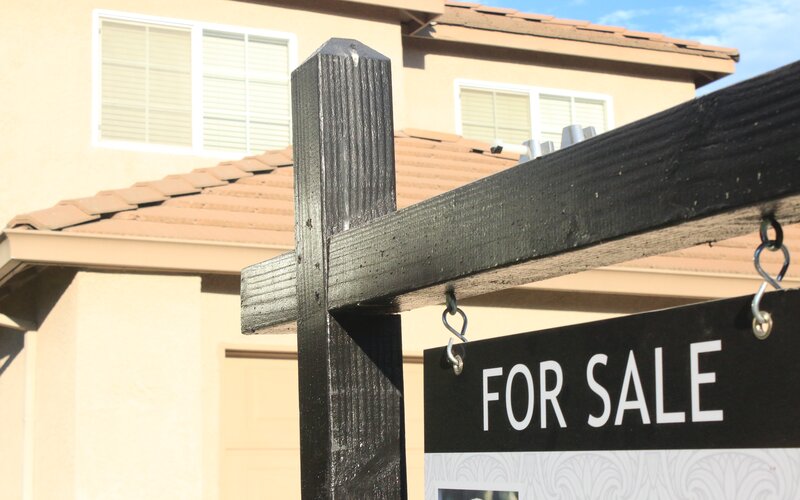Pre-pandemic it arguably would have been outrageous to consider buying a home at an auction from behind a computer screen. However along with virtual inspections also came a rise in the number of buyers willing to put up their paddle online - whether through Zoom, Teams, or Google Hangouts.
Attending an online auction may be daunting at first, however for those looking to buy in a new town, suburb or city, considering online auctions as a way of buying will give you more options. Going to one or two before seriously contemplating buying will also let you get a good feel for the process before you are ready to put up the virtual paddle.
While many auctioneers have taken their gift of the gab online, like ducks to water, many buyers probably aren’t familiar with the concept - so how do online auctions work?
Advertisement
Buying a home or looking to refinance? The table below features home loans with some of the lowest interest rates on the market for owner occupiers.
| Lender | Home Loan | Interest Rate | Comparison Rate* | Monthly Repayment | Repayment type | Rate Type | Offset | Redraw | Ongoing Fees | Upfront Fees | Max LVR | Lump Sum Repayment | Extra Repayments | Split Loan Option | Tags | Features | Link | Compare | Promoted Product | Disclosure |
|---|---|---|---|---|---|---|---|---|---|---|---|---|---|---|---|---|---|---|---|---|
5.54% p.a. | 5.58% p.a. | $2,852 | Principal & Interest | Variable | $0 | $530 | 90% |
| Promoted | Disclosure | ||||||||||
5.49% p.a. | 5.40% p.a. | $2,836 | Principal & Interest | Variable | $0 | $0 | 80% |
| Promoted | Disclosure | ||||||||||
5.64% p.a. | 5.89% p.a. | $2,883 | Principal & Interest | Variable | $250 | $250 | 60% |
| Promoted | Disclosure | ||||||||||
5.64% p.a. | 5.89% p.a. | $2,883 | Principal & Interest | Variable | $248 | $350 | 60% |
| Disclosure |
What is an online auction?
An online auction or virtual auction is an auction that allows bidders, buyers, and sellers to attend auctions in the comfort of their own home.
There are generally two types of online auctions: One where the whole process is completely online due to Covid restrictions. This means the auctioneer is set up in their home or office and conducts the event virtually. Agents are working the virtual floors, chatting or calling bidders privately. Admin staff are registering bids and scribing virtually, too. All bidders and rubberneckers are also tuning in from their home.
Usually private inspections are arranged prior but could be numbers-limited due to Covid restrictions.
The second is where the auction process is live streamed, allowing prospective buyers to bid alongside those who are attending the auction in person. An agent is usually paired with a virtual buyer and is with them on the phone or online to bid as a proxy. The auctioneer is usually live at the property who accepts bids from both online and physical bidders.
Benefits of online auctions
The benefit of online auctions is that bidders can be anywhere in the world rather as opposed to restricting bids to those who have made the trip to attend the auction in person.
Founder of Property Comet buyers agency, Branden Sarafov, told Savings.com.au online auctions became a way to compete in a hot market.
“My decision to purchase via an online auction was derived from my inability to get in front of a very competitive market,” Mr Sarafov said.
“When I was looking at purchasing there were multiple local and interstate buyers willing to pay well over the odds to secure a property within the particular area I was targeting.
“The lack of supply on and coming onto the market compounded the demand for property at the time. After making offers on multiple properties and being outbid I knew I needed to take a different approach if I wanted to secure a property in this competitive market.
“That's when I decided to look down the online auction route. I knew being an inter-state buyer that most other inter-state buyers would be reluctant to go to auction whether face to face or online. This is because online was quite uncommon and very few had experience in this space nor would they be willing to fly to the location to attend an auction they weren't guaranteed winning.
“I attended one auction virtually and was quickly outbid by local buyers. The second auction I attended virtually online had a handful of buyers on the ground and I was the only buy online. Fortunately, after bidding back and forth with a local buyer I was able to secure the property.”
How do you register for an online auction?
Most real estate bodies will use an online platform of their choice to service these auctions. Registration for these platforms is similar to many other online accounts.
For first time bidders you create a user profile based on your own information and can simply “log in” and “register” for the property you wish to attend the auction for. You then ensure you are online for the scheduled start time and begin the auction using a link provided by the agency.
Alternatively you can also contact the agency or the agents on the listing prior to the auction to register. If you’re not a registered bidder, your bid won’t be accepted.
Mr Sarafov said the online auction process was relatively straightforward.
“In a traditional auction, the buyer will attend a property at a specified time and location,” he said.
“This same applies to an online auction with the main difference being you are bidding online and not present at the property. Prior to the auction commencing the selling agent will have you register and then will typically send a video conferencing link to have you join the auction virtually.
“They will then assign you a proxy bidder - this is someone, most likely a real estate agent, who is present at the auction and bids on your behalf.
“Once the auction kicks off, the proxy will communicate with the online buyer and bid on their behalf. If successful, the proxy will typically sign on behalf of the online buyer, and the same procedure as a traditional auction then take place once the auction has finished.”
Considerations when buying at an online auction
Aside from the virtual aspect, online auctions work much the same as a regular auction. In this sense if you bid, you buy. Sales are unconditional and unless you have the cash, it’s probably a good idea to get home loan pre-approval before you bid. The winning bidder is also usually required to front up for a 5-10% deposit straight off the bat.
Building and pest inspections are also able to be done, however many vendors now offer one to buyers. Open homes in the days and weeks prior are still also available, though Covid restrictions may have thrown a spanner in the works.
Mr Sarafov said online auctions can be daunting for many buyers - similar to traditional auctions.
“Sometimes it can get quite chaotic and noisy due to the nature of an auction. However, the proxy bidder is usually quite good at helping the online buyer understand exactly what is happening on the ground,” he said.
“Moreover, the auctioneer is usually aware if an online bidder is present and will take their time to repeat offers multiple times in order to ensure everyone - including online buyers - are aware of where offers stand.
“It is important to note, online auctions still come with the traditional limitations of a traditional auction. All offers are unconditional so it would be important that anyone looking at using this mode of purchasing has their finance aligned and understands the condition of the property in question.
“The pandemic forced society to adapt to new norms. For the property market, the rise of online auctions/bidding was a new norm that enabled sellers and buyers to continue to interact without the limitations that the pandemic presented.
“This has benefited both parties as sellers are able to increase exposure to more potential buyers and allowed buyers to purchase at auctions when they may have previously not been able to.”
Image by Christin Hume via Unsplash

Ready, Set, Buy!
Learn everything you need to know about buying property – from choosing the right property and home loan, to the purchasing process, tips to save money and more!
With bonus Q&A sheet and Crossword!







 Hanan Dervisevic
Hanan Dervisevic
 Dominic Beattie
Dominic Beattie













